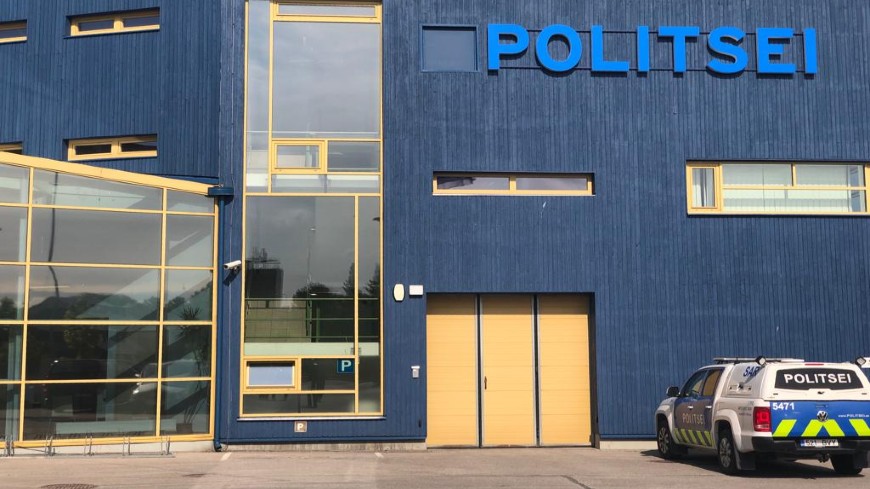The main objective of the visit was to review the measures taken by the Estonian authorities in response to the recommendations made by the Committee after previous visits. In this connection, particular attention was paid to the treatment and conditions of detention of persons in police custody and penitentiary establishments, especially those placed in solitary confinement. The delegation also examined the situation of psychiatric patients, foreign nationals detained under aliens legislation and military servicemen placed in disciplinary detention.
The report positively indicates that no recent credible allegations of ill-treatment by Police and Border Guard officers were received from persons who were or had been held in police custody, except for a few instances of verbal abuse. Regarding the fundamental legal safeguards against ill-treatment (notification of custody, access to a lawyer and to a doctor), the CPT’s findings suggest that the situation had generally improved as compared to its previous periodic visit to Estonia in 2017. However, persons in police custody continued to not be formally entitled, and granted in practice, the express right of access to a doctor as from the very outset of their deprivation of liberty (as distinct from the duty of the Police and Border Guard to ensure that detained persons receive medical assistance whenever needed). The response of the Estonian authorities indicates that efforts are being made to improve the access to healthcare for persons in police custody.
As for foreign nationals detained under aliens legislation, the detention facility in Tallinn had very good material conditions. However, some improvements are required in the outdoor facilities of the admissions unit, and organised activities should be developed for foreign nationals who have been held in the facility for prolonged periods. In their response, the Estonian authorities declare to have implemented these recommendations.
With regard to the situation in prisons, the report pays particular attention to the situation of prisoners subjected to conditions equivalent to solitary confinement. Despite repeated recommendations made in the past, the maximum possible period of disciplinary solitary confinement set out in the law remained unchanged at the time of the visit. As for security segregation (Section 69 of the Imprisonment Act), the Committee stressed that this measure should not be used as a substitute for disciplinary confinement and that regular reviews of the placement in segregation should be established. Furthermore, all prisoners in solitary confinement – including those confined in the Psychiatric Unit of Tartu Prison – should have an individual regime plan to assist them to return to a normal regime as soon as possible, and should be offered meaningful human contact for at least two hours every day, and preferably more. The Estonian authorities stated in their response that a recently passed law reform addressed these shortcomings (notably reducing the maximum duration of disciplinary confinement) while further measures were under consideration, including a reassessment of the appropriateness of security segregation.
The delegation received hardly any allegations of physical ill-treatment by staff, although a few allegations were heard about excessive use of force and verbal abuse by prison guards. Inter-prisoner violence, though not a major issue, did exist, especially at Tartu and Viru Prisons. That said, staff appeared to be generally proactive in preventing and, when incidents occurred, appropriately dealing with such cases.
The Committee welcomes the substantial efforts by the Estonian authorities to completely renew the prison estate. All penitentiary establishments now provide adequate conditions of detention in modern cell-type prison facilities, thus contributing to the removal of informal prisoner hierarchies. However, improvements are necessary for some outdoor exercise facilities. Moreover, it is unacceptable that remand prisoners are still locked up in their cells 23 hours a day for long periods. The CPT calls upon the Estonian authorities to step up their efforts to broaden the range and increase the availability of out-of-cell activities for all prisoners, including those on remand. In their response, the Estonian authorities expand on the measures taken in this respect, including for remand prisoners.
With regard to the situation in the four psychiatric establishments visited, patients were generally treated correctly. However, the report mentions a few allegations received by the delegation of informal punishments (such as prohibition of outdoor exercise, confiscation of cigarettes or having to take a shower in cold water) of patients by staff at Viljandi Forensic Department. Living conditions varied but were largely acceptable in all establishments visited, although enhanced efforts are required to provide patients with a more therapeutic material environment (allowing more decoration and personalisation) and with access to lockable space in which to keep their personal items. The report also points to a number of problematic aspects related to mechanically restrained (fixated) patients, including the lack of ongoing direct supervision by a nurse, prolonged fixation periods, and use of fixation on underage patients. The Estonian authorities stated that discussions with national and international experts to address these issues were ongoing.
As regards military detention, the Committee welcomes the rapid response given by the authorities to its delegation’s observations that the holding cell at the Headquarters of Kuperjanov Battalion in Võru should never be used for periods of detention exceeding a few hours, and that military servicemen held at Tallinn Detention House (and, as applicable, in all other detention houses under the responsibility of the Ministry of the Interior) should have access to genuine daily outdoor exercise. In their response, the Estonian authorities accept both of these recommendations.
The CPT report and the response of the authorities have been made public at the request of the Government of Estonia.



